
Migrants / refugees
Elba Rahmouni
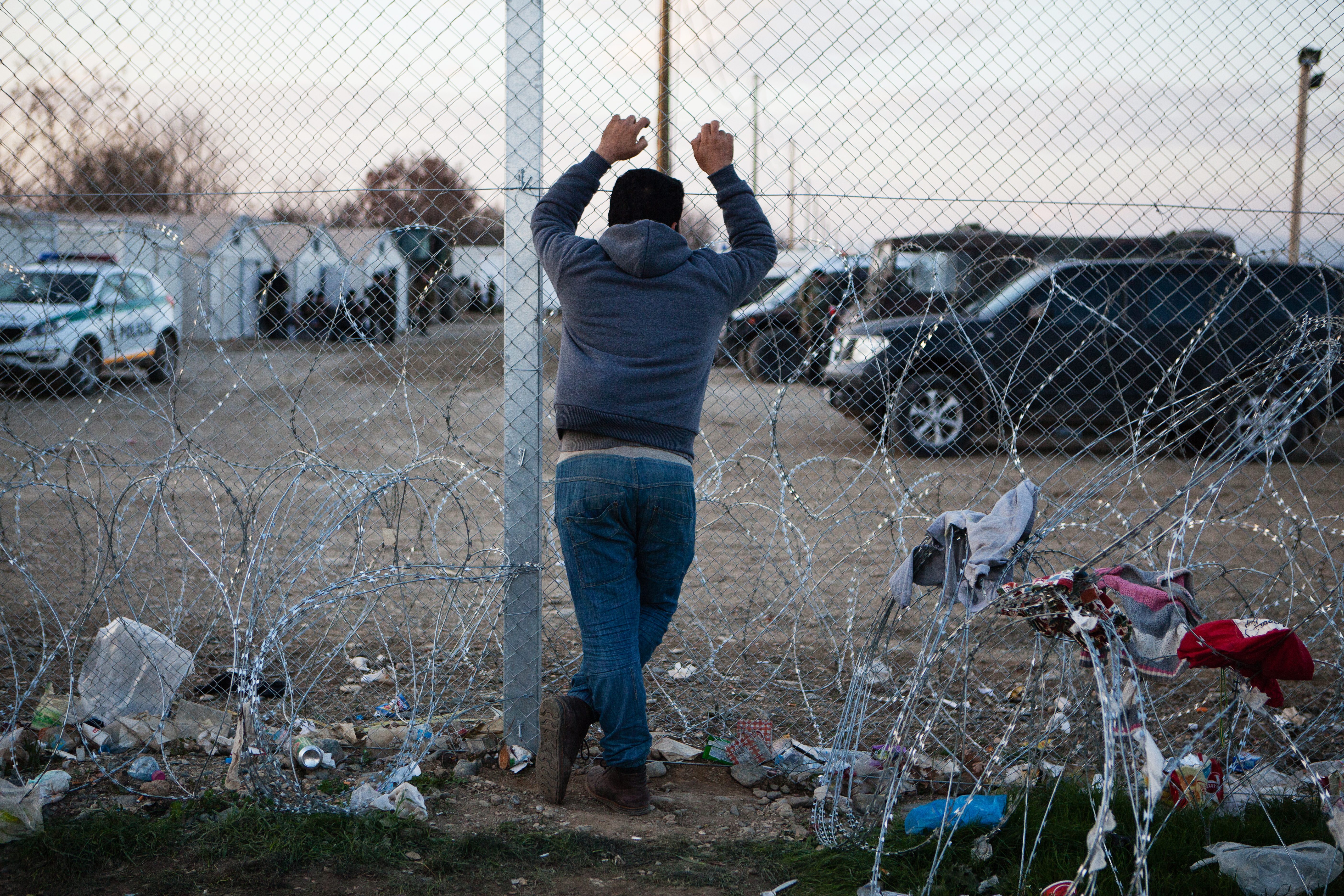
The Geneva Convention of 28 July 1951 defines a refugee as someone who “owing to a well-founded fear of being persecuted for reasons of race, religion, nationality, membership of a particular group, or political opinion, is outside the country of his nationality and is unable or, owing to such fear, is unwilling to avail himself of the protection of that country”. Whereas all refugees are migrants, not all migrants are refugees. According the UN’s definition, a migrant is a person who is born in one country and lives in another country for more than one year for whatever reasons. A refugee is a person who has been forced to leave his or her country because of a major political crisis: war, ethnic violence, etc. He or she is first an asylum seeker and may later obtain the status of refugee.The practical application of this definition or, in other words, the answer to the question "who is a refugee and not simply a migrant?" has changed considerably since its adoption. With the cold war over, refugees have lost their status as an instrument of western soft power, whereas with the economic crisis and terrorism, hostility towards migrants is increasing. Prevailing representations of migration movements are convincing a growing proportion of the European population that migrants are a threat and refugees a burden.
The workings of CRASH draw on social sciences and Médecins Sans Frontières’ experience. This file contains a collection of publications (articles, opinion columns, blog articles, press releases, CRASH papers) from 1990 to date, focusing on two themes :This file does not include articles on refugees and their links to the different armed conflicts or on the intervention or non-intervention of MSF in these different contexts.The first is the dichotomy between hospitality policy and migration policy. Notions such as the right of asylum, respect for human dignity, respect for the law and the duty of hospitality, solidarity and reception are being confronted with the migration policies of the majority of governments. In the articles in this file, the members of CRASH question the apparent lack of clarity in the distinction between economic migrants and refugees fleeing from wars, and the idea that the assistance given to them is a pull factor that attracts more migrants. They also draw attention to the violence that migrants are exposed to in their daily lives, sometimes at the hands of the police. And although they agree with the criticisms made of the agreement between the European Union and Turkey (March 2016), the members of CRASH also criticise MSF’s refusal to seek European funding.
The second theme is camps and is approached from a number of different angles.
1° Their temporality: permanent settlement or temporary refuge? Although camps are intended to provide emergency accommodation, they often become a long-term solution.
2° Their functioning: security at the cost of freedom? Given the exceptional regime in place in camps, what freedom does their supervision by the authorities allow the people living there?
3° Their limits: towards a policy of “disencampment”? In some cases, camps, which now only concern one third of the world's refugees, are more like detention or work camps. Reflection is underway to find an alternative to camps.
Libya: the forgotten ones
03/02/2020Michaël Neuman spent ten days in Libya with Médecins Sans Frontières teams working in detention centres for migrants. From his stay, he brings back the following impressions that illustrate the gloomy situation of the people who are held there, for months or years, and the even more difficult situation of all those subject to kidnapping and torture.
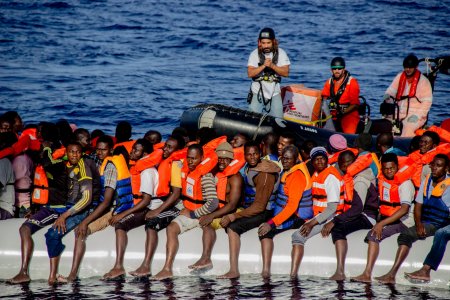 Borja Ruiz Rodriguez/MSFOp-ed
Borja Ruiz Rodriguez/MSFOp-edHumanitarian reasons versus political interests
07/11/2018Humanitarian organisations coming to the rescue of migrants in the Mediterranean Sea are kindly required either to watch them drown or to hand them over to human traffickers and torturers. We have seen countless political statements, opinion polls and editorials on the need to take a harder line against African migrants and accusing NGOs of being the accomplices of “smugglers”. We have even heard it said that these NGOs are organising the departures of those aspiring to migrate to Europe coincide with the presence of a rescue ship, making relief workers conscious actors in a criminal enterprise.
NGOs are not in collusion with smugglers
07/10/2018Humanitarian aid organisations carrying out rescues at sea were made into the accomplices of human traffickers. This accusation is as absurd as it is unacceptable. Not only do rescue operations at sea save people from drowning, but they evacuate people in situations of immediate danger in Libya, MSF recalls.
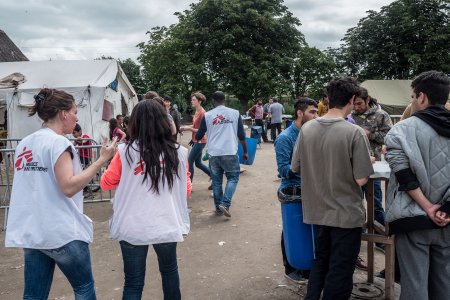 Charles HabibAnalysis
Charles HabibAnalysisSheltering, hosting or receiving refugees: the unresolved ambiguities of the La Linière refugee camp
07/05/2017Following the dismantlement of the Basroch camp in Grande-Synthe and the resettlement of refugees in the new La Linière camp, in the spring 2016, Michaël Neuman and Franck Esnée wanted to focus their analysis and story on the “camp” – as an object –, its nature and management. This article was originally published in Alternatives Humanitaires #5, in July 2017.
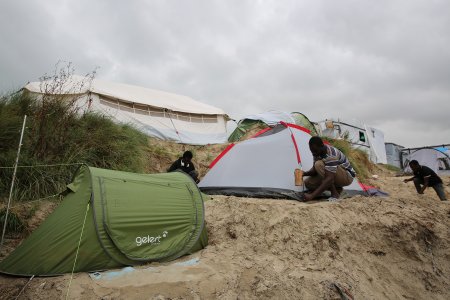 Mohammad GhannamOp-ed
Mohammad GhannamOp-edCalais has become a cage in a jungle
06/17/2017In this post, published in Border Criminologies, Michaël Neuman and Corinne Torre speak out against the inhuman conditions imposed on migrants and refugees in Calais by the French state. This piece was originally published in French in Le Monde.
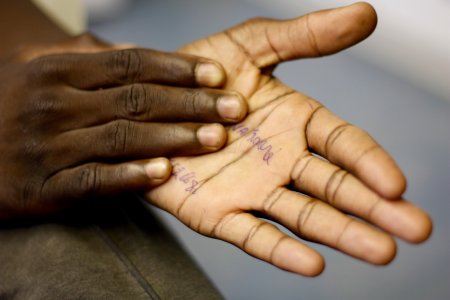 Alva WhiteOpinion
Alva WhiteOpinionLettre ouverte aux dirigeants de MSF qui refusent les fonds de l’UE
08/23/2016Trois mois après l'accord UE-Turquie sur les migrants, MSF a décidé, le 17 juin dernier, de renoncer aux fonds de l'UE afin de protester contre sa politique migratoire. Cette décision a entraîné des débats internes au sein de MSF.
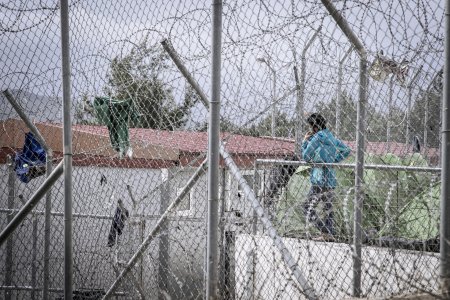 Guillaume BinetInterview
Guillaume BinetInterviewDébat interne à MSF face à la politique migratoire de l’UE
07/05/2016Trois mois après l'accord UE-Turquie sur les migrants, l'ONG Médecins sans frontières a décidé, le 17 juin, de renoncer à tout financement de l'Union européenne et de ses États membres pour dénoncer leur politique migratoire « honteuse ».
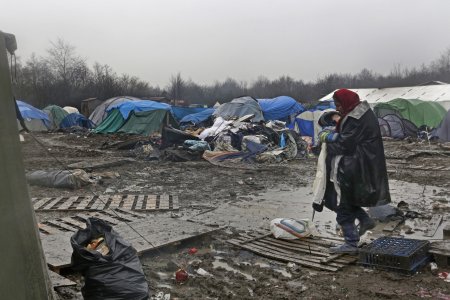 Jon LevyAnalysis
Jon LevyAnalysisMSF à Grande-Synthe : enseignements d’une improbable coalition d’acteurs
11/24/2016Cet article a été publié dans la revue Alternatives Humanitaires. Angélique Muller et Michaël Neuman opèrent un retour d'expérience sur l'action menée par Médecins Sans Frontières dans le cadre d'un projet d'assistance aux migrants dans la ville de Grande-Synthe.
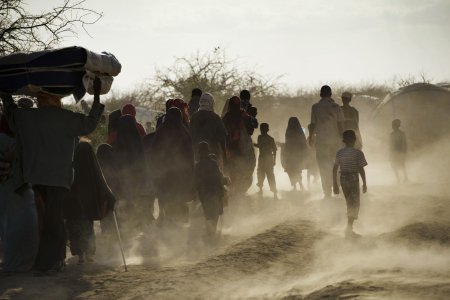 Lynsey AddarioInterview
Lynsey AddarioInterviewFrom Dadaab to Calais: what are the alternatives to the refugee camp?
11/18/2016MSF Crash's directors of studies, Rony Brauman and Michaël Neuman talk about MSF's refugee camp experience.
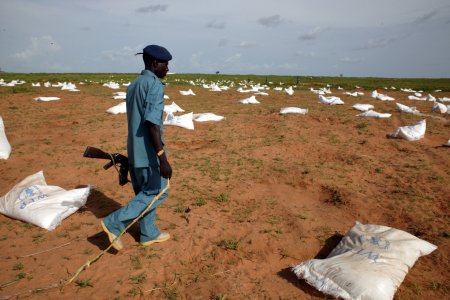 Michael ZumsteinOpinion
Michael ZumsteinOpinionAide humanitaire : effet pervers de la lutte contre les effets pervers
10/01/2008Fabrice Weissman réagit à la décision du Programme Alimentaire Mondial des Nations-Unies de distinguer déplacés et migrants économiques pour enrayer l'afflux de nouveaux arrivants dans les camps du Darfour.
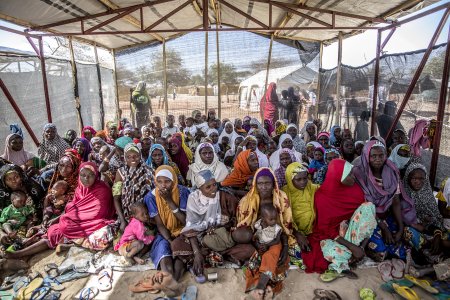 Juan Carlos TomasiOpinion
Juan Carlos TomasiOpinionL’aide ne crée pas le réfugié
09/01/2007Rony Brauman conteste l'idée selon laquelle l'aide serait un facteur déterminant des mouvements de populations.
lire sur alternatives-internationales.fr
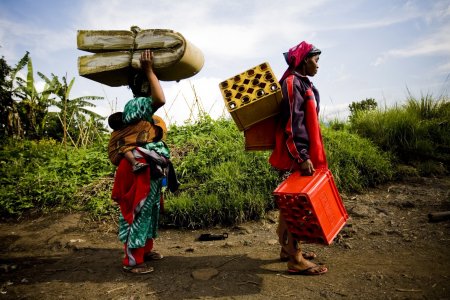 Dominic NahrAnalysis
Dominic NahrAnalysisRéfugiés, go home !
04/01/1990Rony Brauman souligne les transformation de la conditions des réfugiés en Europe à la fin de la guerre froide.

